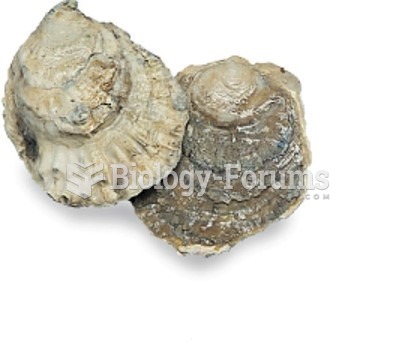|
|
|
Bacteria have flourished on the earth for over three billion years. They were the first life forms on the planet.
There are over 65,000 known species of protozoa. About 10,000 species are parasitic.
Increased intake of vitamin D has been shown to reduce fractures up to 25% in older people.
According to the Migraine Research Foundation, migraines are the third most prevalent illness in the world. Women are most affected (18%), followed by children of both sexes (10%), and men (6%).
Blastomycosis is often misdiagnosed, resulting in tragic outcomes. It is caused by a fungus living in moist soil, in wooded areas of the United States and Canada. If inhaled, the fungus can cause mild breathing problems that may worsen and cause serious illness and even death.







